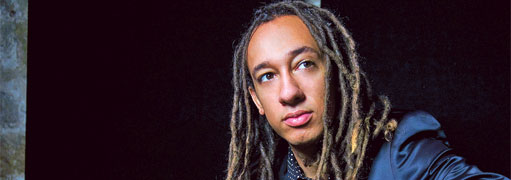Euphony is the acoustic effect produced when sounds are arranged in such a way as to please the ear. When musicians strive for it, the result is often stilted and saccharine. When they’re hell-bent on eluding it, they risk eluding musicality as well.Pianist Gerald Clayton does not seem capable of avoiding it. On Two-shade ( artistShare), his debut release as a leader, his compositions and performances slip into the ear as easily and sweetly as pop music, yet they excite all the brain’s jazz synapses. He and his telepathic mates—bassist Joe Sanders and drummer Justin Brown—manage to make complex music eminently accessible without watering it down.How? The 26-year-old phenom is as musical as Mozart, and he wields a breathtaking technical command with the aplomb of an old pro. Thursday at the Outpost, the Gerald Clayton Trio will swing into action, and Albuquerque will have the opportunity to catch a rising star in the jazz firmament. Raised Right Growing up in a jazz household—his dad is bassist John Clayton; his uncle, saxophonist Jeff Clayton—probably did not slow young Gerald down in his musical development, but for 11 years, his focus was on the classical piano.“I think definitely classical music prepares you just how to play the instrument. Technically, there’s that aspect of it—the touch of the piano,” says Clayton. “I think there are certain sensibilities that we get in classical music that aren’t always as obvious in jazz. For instance, at the end of a tune, a kind of a cadence—there’s sort of a breath that can’t really be explained or written down or broken down, but it just feels right, sort of the exact amount of space between those last two notes. So it’s a lot of that sort of thing,” he says. “But you know, the more I think about it, I try not to think of jazz and classical as being really different things. It’s all sounds, and it’s all expressing a certain story or emotion, and I’m just trying to tap into that.”After those 11 years, Clayton enrolled in and graduated from the jazz studies program at the University of Southern California and spent a year at the Manhattan School of Music in New York, along the way studying with Shelly Berg, Billy Childs and Kenny Barron.Among his many awards and accomplishments is a second-place finish in the prestigious Thelonious Monk Institute of Jazz piano competition, and two Grammy nominations: one for best improvised jazz solo (2009) on “All of You” from the trio’s album Two-shade, and one for best jazz instrumental composition (2010) for “Battle Circle” on the Clayton Brothers’ Grammy-nominated album The New Song and Dance, on which he plays piano. More Grammy nominations may be ahead, as the trio has just released its latest recording, Bond (artistShare). Make It Count Just as he thinks past the differences between jazz and classical music, Clayton is happy to merge classic and contemporary jazz influences in his compositions and performances.“The main thing I’m striving for when I’m playing is to just be expressing myself with honesty,” he says. “My influences are a lot more sonically pleasing—the Oscar Petersons and the Benny Greens. That’s definitely my home base, but it doesn’t stop there. I really admire some music that some people would think is not even music.”Clayton is ready to bring whatever the narrative line calls for, but his ultimate goal is to “make every note count, make every note relevant.” On Two-shade, indeed, the only thing missing is what’s not missed at all, and the trio plays with a responsiveness and a level of musicianship that promise a scintillating live performance.
Gerald Clayton TrioThursday, March 10, 7:30 p.m.
Outpost Performance Space210 Yale SE , 268-0044Tickets: $20, $15 members and students



